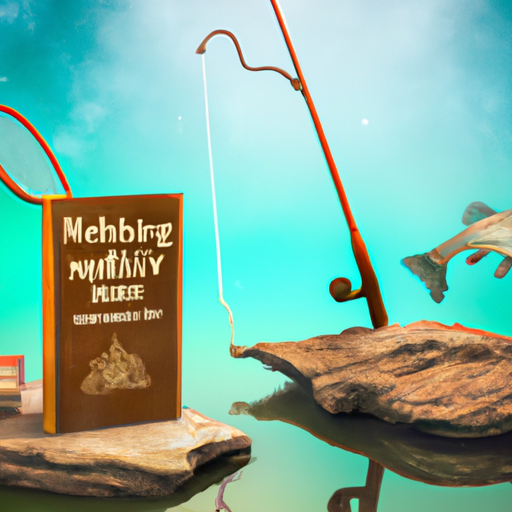Imagine yourself on a serene lake, fishing rod in hand, listening to the soft whispers of the wind. There are quiet conversations about the common fishing tales and nuances in the background. These conversations surprisingly seep in a lot of myths as tradition. In the bustling world of fishing, there are numerous claims that exist. “Investigating The Myths Of Fishing: Fact Vs. Fiction” peels back those layers, separating the rooted fiction from proven facts, giving you a clearer view of what’s true and what’s merely a fish tale.
Understanding the Nature of Myths and Legends in Fishing
Fishing is not just a hobby or a means of livelihood, it’s an art endowed with numerous myths and legends. Let’s dive deep into understanding these myths.
The origin of fishing myths and legends
The inception of fishing myths dates back to where fishing started. Most of these myths were born out of fishermen’s experiences coupled with cultural, spiritual, and superstitious beliefs. Ranging from having good luck days to using certain bait, these myths have been passed down generations.
Why people believe in fishing myths
First, it is because of tradition. The myths have been shared so much they have become a norm. Also, fishing is such a fickle-prone activity that fishermen want to believe they have some control over the situation, even if that control is routed in myth.
The impact of fishing myths on sport and commercial fishing
Regardless of their authenticity, myths have influenced fishing practices. Some commercial fishermen follow them, fearing the consequences of not doing so, while others have seen these myths as a method to add extra luck to their expedition.
Myth 1: The Bigger the Bait, the Bigger the Fish
This age-old myth suggests that using a larger bait will attract bigger fish.
Understanding bait size and fish behavior
Fish, like every other creature, are driven by survival instincts, primarily hunger and self-preservation. Though a tiny fish might be tempted by big bait, it’s unlikely it will risk attacking something significantly larger than itself.
Scientific studies on bait size and fish size
Scientifically, it has been found that a fish’s aptitude to attack bait reduces drastically when the size of the bait is closer to or bigger than the fish.
Professional fishermen’s experiences
Various professional fishermen have noted that bait size has little effect on the size of the fish caught, generally speaking. Sometimes, even the smallest bait can reel in a big fish.
Myth 2: Fish Can’t See Color
Probably one of the most controversial myths is that fish are colorblind.
The physiology of fish eyes
Contrary to the myth, fish have advanced vision and can supposedly see a broader spectrum of colors than humans.
Fish and color perception experiments
Recent studies have shown that fish do not only perceive color but also show preferences for some colors depending on variables like species and environmental conditions.
Influence of color on fish catch rates
The color of the bait has been observed to affect catch rates in certain situations, especially in clear water conditions.
Myth 3: Fishing During a Full Moon is Most Productive
There’s a belief that fishing during a full moon yields a more bountiful catch.
Lunar phases and fish behavior studies
Several studies have indeed shown that the moon’s stages affect fish behavior. But the results are not definitive enough to unequivocally claim that a full moon guarantees a better catch.
Experiences of fishermen fishing during full moons
Various fishermen have had different encounters with fishing during full moon nights. Some have had their best catch, while others had the most frustrating fishing nights.
Other environmental factors influencing fish behavior
Other factors such as temperature, water clarity, food availability, and fish age and size equally influence fish behavior.
Myth 4: Bananas are Bad Luck on a Fishing Boat
The banana myth is one of the most peculiar yet strongly held superstitions among fishermen.
Origins of the banana superstition
The banana myth originates from the sea-going lore, where it was told that vessels carrying bananas as cargo often met with disastrous fate.
Investigating the truth behind the banana myth
Although it sounds far-fetched and fruits should logically not cause any harm to fishing, the banana myth is still followed by many. Some even go to the extent of checking their gear and snacks for banana-related items.
Impact of superstitions on fishing culture
Superstitions like the banana myth form a part of the fishing community’s rich culture. The fact that many still observe this is proof that such stories shape fishing traditions.
Myth 5: Fish Bite More on Rainy Days
This myth posits that rainy days are prime for fishing activities.
Weather conditions and fish behavior
Rain can affect fishing in a couple of ways. Primarily, it brings more food into the water, making fish more active and thus, more likely to bite.
Experiences of fishing in different weather conditions
However, fishing in various weather conditions has shown that fish behavior and a successful catch are not solely dependent on rain.
Scientific perspective on fishing during rainy days
Although many believe fish bite more on rainy days, scientists haven’t found any strong evidence directly linking rain to increased fish bites.
Myth 6: All Fish Taste the Same
Some folks operate under the assumption that all fish have the same taste.
Varieties of fish species and taste differences
Among the multitude of fish species, each has its distinctive taste, texture, and flavor. The taste difference can be attributed to factors like fish diet, habitat, and fat storage.
Impact of cooking methods on fish taste
Cooking procedures significantly affect fish taste as well. For instance, grilling may not yield the same flavor as frying, even if it’s the same fish species.
Sensory analysis studies on fish taste
A sensory analysis study would reveal the broad differences in taste across various species.
Myth 7: Fish won’t bite if you touch the bait with your hands
This myth suggests that touching the bait repels fish.
Fish scent sensitivity and human contact
Fish have an acute sense of smell, able to detect even slight changes in their environment. Some fishermen believe human smells, particularly from hands, may deter fish from biting.
Experiments on the impact of human handling on bait
However, scientific experiments have not supported this notion. Fish often gauge their environment through tastes and smells, and several other factors would override the human smell on the bait, if any.
Professional and amateur fishing experiences
Despite this myth, both professionals and amateurs have achieved successful catches, debunking the idea that touching the bait affects fish behavior.
Myth 8: Fishing Lines are Invisible to Fish
There’s a widespread belief among anglers that fishing lines are imperceptible to fish.
Fish vision and line transparency studies
Despite the transparency of fishing lines, fish with well-developed vision can see them, especially in clear water.
Impact of fishing line visibility on catch rates
Though visibility may temporarily scare the fish or make them cautious, there isn’t a substantial difference in catch rates caused by line visibility.
Anglers’ observations on fish line visibility
Anglers’ experiences vary, with some preferring mono or fluorocarbon lines for minimal visibility.
Myth 10: Fish have short memories
A common myth is that fish can only remember things for a short period, sometimes for only a few seconds.
Understanding fish cognitive abilities
Contrary to this belief, research has shown that fish possess decent cognitive abilities and can remember things for months or even years.
Scientific studies on fish memory
Recent studies have disproved this myth, showing fish can retain knowledge for a considerable period.
Implications of fish memory on fishing techniques
Believing that fish have short memories can affect fishing techniques. A better understanding of fish memory potentially opens up new methodologies for luring and catching them.
That sums up our myth-busting fishing journey. Emerged armed with new knowledge, remember to enjoy the art of fishing and make your own stories rather than blindly following the tales of old. Happy fishing!










